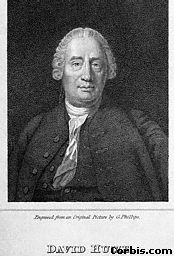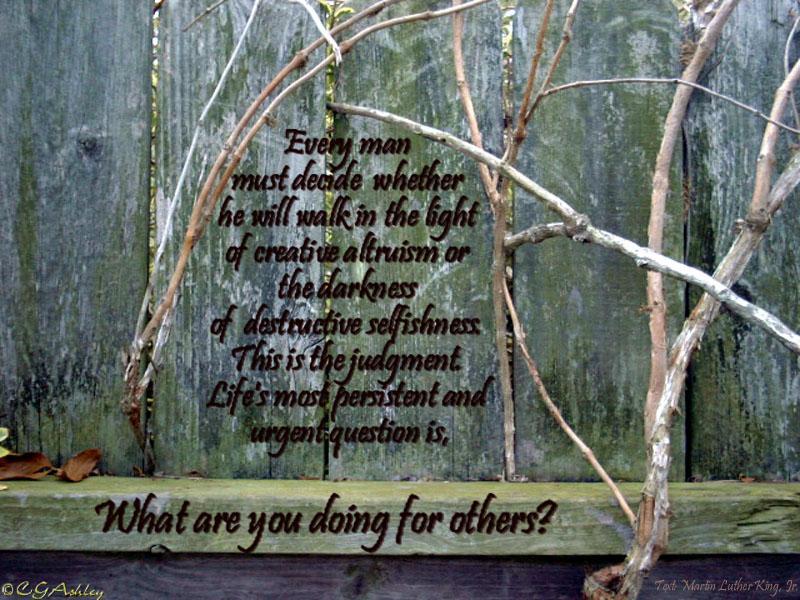PART 4:
GENES, ALTRUISM, AND EVOLUTION
|
|
Section 2: “Human Nature” and the “feel good”
of it all
|
|
|
|
|
| In the last section we encountered some theories that scientists use to explain altruistic behavior in animals in terms of selfish motives. These selfish motives were in some ways rooted to the evolutionary process. The argument is centered on Darwinian concepts of natural selection in which propagation of one’s genetic material or that of the entire species becomes central to altruistic behavior explained through selfish motives. But what about the case of altruistic tendencies of human beings? | |
| An interesting example to consider is the Federal Aviation Administration (FAA)- approved script that is recited by stewardesses in just about every airline. The stewardess warns everyone that in an event of an emergency a person should PUT ON HIS OWN mask before attempting to help others. | |
| One observation, which can be drawn here, is that there is something almost instinctive about human nature so that the person is likely to help someone next to them with the oxygen mask before putting it on himself. In fact, it is so immediate in some people that the FAA felt compelled to warn passengers against it! If in fact a passenger did assist another before himself, he would pass out before he would finish securing a mask on the other person. So everyone would die! | |
| The moral of this story is that altruistic behavior is in some ways engrained in human nature. This is so compelling that the FAA put in the script to warn everyone against such attempts. | |
| So what do we mean by human nature? I already alluded to the genetic factors (Part 4, section 1), as well as chemical influence (Part 1) on behavior. Also we saw the possible involvement of brain areas in “feelings of empathy” (Part 2). But lets go back to the broader picture for a moment and see what philosophers have to say on the topic. Human nature is actually the central concept behind moral theory and there is a lot written on the topic. Lets take the writings of David Hume, a Scottish philosopher (1711-1776) whose discussion of human nature is quite relevant to our inquiry of altruistic behavior in humans. | |
| David Hume wrote extensively about “human nature” and developed a theory of universal notion of what people are like. I think this is worth examining if only for the sake of having an example from history (the oxygen mask example is actually recent, Hume wrote back in 18th century and they did have planes yet!). | |
| To prove his theory of universality of “altruistic” sentiments, Hume appealed to occurrences of some of these strong sentiments that each of us must have experienced. It is easy to comprehend that joy and happiness gives one pleasure, while pain and suffering of others makes one uneasy. From his own accounts, Hume tells us of the immediate anger he feels when he knows that someone had wronged his neighbor by trying to steal his inheritance. But he has only “agreeable emotions” from “prospect of joy” that is clearly present in a friendship or a love affair. | |
| When
watching theater, one has feelings of pleasure from characters representing all that
embodies “gentleness and tranquility.” However, according to Hume, violent
scenes, such as murder, make one despise the character that commits them. |
|
| When
reading historical accounts, we also tend to sympathize with the oppressed and resent the
oppressors: “our hearts beat with correspondent movements to those described by
historians.” In all these instances, “fear and malice excites in one a
“powerful concern.” |
|
| In various accounts, Hume rejects the theory of sentiments based on self interest because he is arguing that the observations that human beings tend to give preference to a beneficial character or system of conduct over a malicious one, is rooted in a much more “universal and extensive” of people. From nature, custom, and habit, came a universal “unalterable standard” by which we judge what is good and what is bad. The concept of universality entails a collective notion, which exists and operates everywhere and under all conditions. | |
| I
think that Hume was right in his observation that there is something in human beings,
which causes them to act altruistically to an extent that it makes them feel good (I will expand on this notion in the
Next section). However,
the problem here is that he rooted his theory in “unalterable standard” which he
implies is within our nature and which makes us act well towards others.
|
|
|
Courtesy of Community Webshots
|
|
| So what did Hume mean by “human nature” as it connects to this “unalterable standard”? | |
| Philosophers have an interesting way of using concepts such as human nature is rather broad terms without narrowing in on the meaning of terms used. Ask Hume what is Human nature and he is likely to appeal to the notions of “what we are like.” Lets be a little more scientific than that…an interesting thing that I discovered is that you can still do that and not let go of the broader picture (that is if you are a good scientist). | |
| So far we seen that chemicals affect the brain and the way the brain is organized gives us the starting material for experiencing “the urge to love.” Remember the thought experiment we did in Part 3 when we “cut” the centers of the brain hypothesized to be concerned with interpersonal relations. What happened then? The “urge to love” was no longer experienced by the person. | |
| Taking from these observations we can say that the brain is organized in such a way that, generally speaking, we have a concern for others that makes us feel good. It seems to be the case that the concern originates in specific areas of the brain, which are influenced by factors such as genetics, which in turn influence brain circuitry and such. However, it is not the case that the “urge to love” is universal in both the personal and evolutionary sense. | |
| There are cases where the human brain does not feel the universal sentiment Hume talked of. Take the case of depression where a person’s picture of the world is far removed from the ability to experience joy and happiness. Once ability to see the “good” in theater is highly colored by what’s inside the human brain; often doctors describe depressed people as “half alive” and unable to experience “normal” emotions of pleasure and joy. | |
| It is also possible to imagine an individual makeup that sees the world as completely different from Hume’s conception. That is, just like a person can “feel good” through doing altruistic behaviors, i.e. have something innate his brain leading him to such an act (remember the oxygen mask example), he can have the makeup of feeling good about seemingly malice acts. I think there are enough observations to say that the feel good of some people is gotten through violence and everything but the altruistic behaviors we are capable of. | |
| There is an enormous amount of literature written on the psychology and physiology of the brains of serial killers but none of the theories are conclusive. For the purposes of the discussion here I will focus of altruistic capabilities of the human brain and their roots. So I will now turn to the question of evolution. Is it the case that evolutionary process played a role in the development of such tendencies? | |
| LINKS on ALTRUISM | |
The Problem of Altruism Trivers' Reciprocal Altruism THE EVOLUTION OF RECIPROCAL SHARING ORIGINS OF VIRTUE |
|

